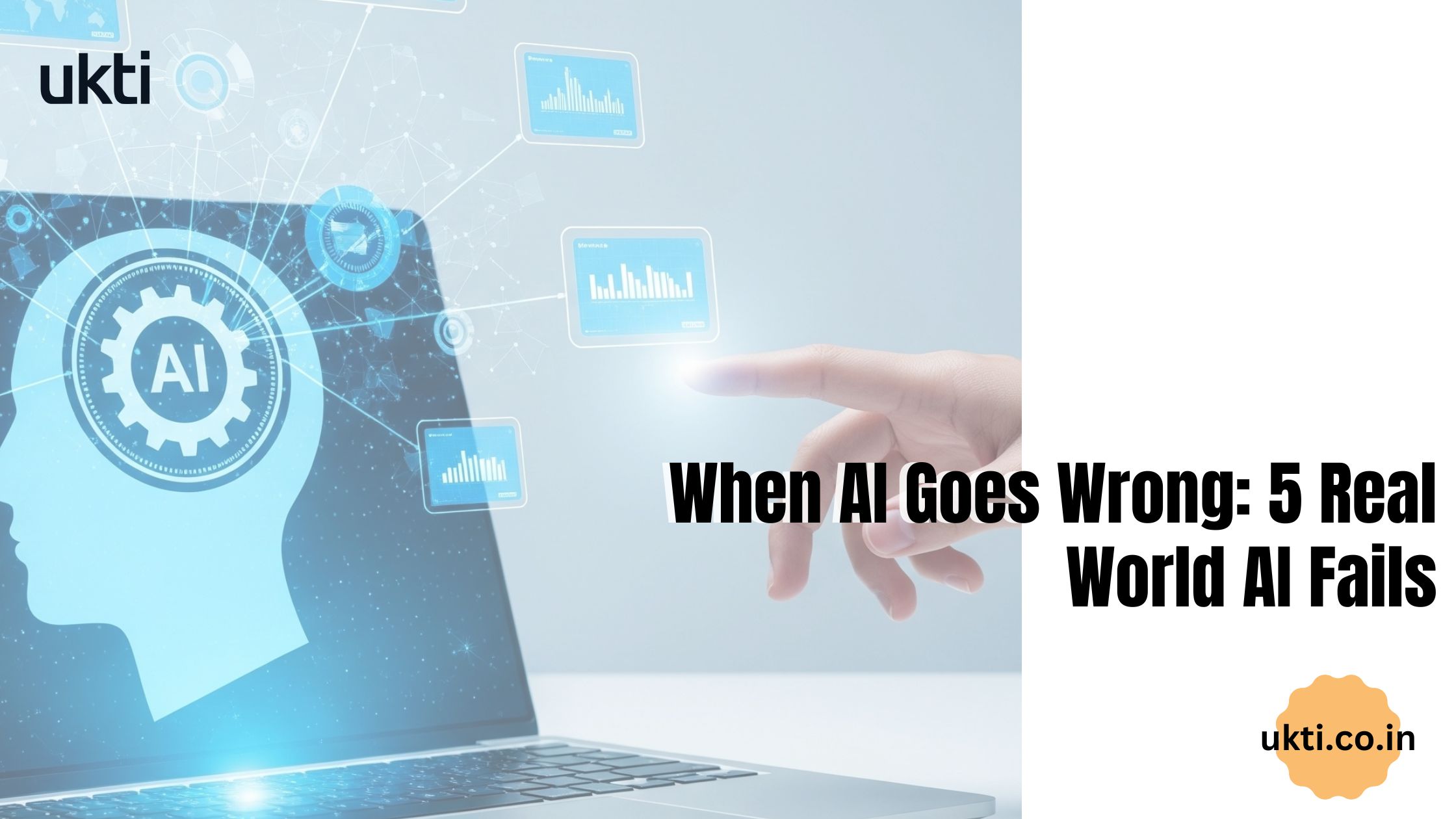We live in a world driven by AI, where there’s a tool for literally everything – from education and finance to marketing and travel. But the thing is, a wide adoption of AI doesn’t necessarily mean that these tools are right all the time.
I’m sure you must’ve seen a chatbot give a hilariously wrong answer or a tool completely miss the context of a question. These small errors might be harmless. But there have been instances of major AI mishaps that have taken a straight hit on a brand’s reputation. How? By causing public outrage, legal trouble, and tarnishing credibility.
In this article, I’ll walk you through 5 such unforgiving generative AI failures, so you use these tools with caution.
Top 5 Generative AI Failures
Here are 5 times when AI got it totally wrong and the catastrophe that followed:
1. McDonald’s

One of the most widely cited AI failure examples is McDonald’s. It started testing an AI-powered voice system for drive-thru orders in partnership with IBM. But the company had to pull the plug in June 2024, after just 3 years.
The idea behind the project was to speed up the ordering process and reduce errors. But in reality, it caused more problems than it solved.
Customers across the US shared videos online showing just how unreliable the system was. In one viral TikTok, two people repeatedly begged the AI to stop adding food to their order. It ignored them and kept piling on Chicken McNuggets, eventually hitting 260 pieces.
Other clips showed similar issues, with the AI mishearing items, adding random products, or completely misunderstanding simple requests.
McDonald’s ran the test in over 100 drive-thrus. But after increasing public frustration and negative attention, it announced in an internal memo on June 13, 2024, that the pilot would end. The company said it still believes voice ordering has potential. But this attempt showed that the tech isn’t ready yet. For now, the failed experiment is a reminder that poorly performing AI can damage customer trust quickly.
2. Air Canada

Air Canada faced major backlash when its virtual assistant gave a passenger the wrong information about bereavement fares. And the mistake ended up in court.
In November 2023, Jake Moffatt asked the airline’s chatbot about bereavement fare options after his grandmother passed away. The chatbot told him he could buy a regular ticket and then apply for a bereavement discount within 90 days. And so, Moffatt booked:
- A CA$794.98 one-way ticket from Vancouver to Toronto
- A CA$845.38 return ticket to Vancouver
But when he later applied for the discount, Air Canada refused. The reason? Bereavement fares can’t be claimed after buying tickets. Moffatt felt cheated and took the airline to a tribunal, accusing it of giving false and misleading information.
Air Canada argued it shouldn’t be responsible for what the chatbot said. But the tribunal disagreed, saying the airline didn’t ensure its chatbot gave correct answers. And so, in February 2024, it ordered Air Canada to pay CA$812.02, including damages.
3. Sports Illustrated

In November 2023, Sports Illustrated faced heavy criticism after reports claimed it had published articles written by AI-generated writers.
The story was highlighted by Futurism, an online publication, which found that many articles on the Sports Illustrated website were credited to writers who didn’t actually exist. The investigation found that:
- The authors’ photos appeared on a website that sells AI-generated portraits.
- The names and biographies linked to those writers were likely fake.
After the issue was brought to light, The Arena Group, which owns Sports Illustrated, said the content was provided by a third-party company called AdVon Commerce. They claimed AdVon had assured them that humans wrote and edited the articles.
The company later admitted that fake names were used on some pieces and removed those articles from the website.
4. Grammys

In April 2023, a song called “Heart on My Sleeve” caused a huge stir in the music industry and raised big questions about the AI copyright issue. The track used AI to copy the voices of Drake and The Weeknd, even though neither of them had recorded it.
The song was made by an anonymous TikTok user and quickly went viral, getting millions of streams online. But it was soon taken down because of copyright problems, as the artists’ voices were used without their permission.
The creator then submitted the track for Grammy consideration. At first, the Recording Academy said it might qualify since a human wrote the lyrics. But they later changed their decision and disqualified it because the vocals were created using AI without approval.
This incident raised some big questions for the music industry:
- Can AI-made songs use a real artist’s voice?
- Should such songs be allowed to win awards?
- Where do we draw the line between creativity and copyright?
5. Zillow

In November 2021, real estate company Zillow faced a huge setback when its home-buying program, Zillow Offers, went terribly wrong. All because of a faulty pricing algorithm.
The plan was simple: Zillow would use an AI tool called “Zestimate” to guess how much a home was worth, buy it for cash, fix it up, and then sell it for a profit. But the tool wasn’t as accurate as they hoped. It often overestimated home prices, which meant Zillow ended up paying too much for many properties.
Here’s what happened:
- The algorithm’s average error was about 1.9%. But for off-market homes, it could go up to 6.9%.
- Zillow had bought 27,000 homes since the program started in 2018.
- By September 2021, it had sold only 17,000.
Because of these mistakes, the company had to write down $304 million in losses and decided to shut down Zillow Offers. It also laid off about 2,000 employees, roughly 25% of its staff.
Tips to Avoid Generative AI Failures
It’s not wrong to say we live in an AI-driven world. And so, it’s not really practical to avoid using generative AI altogether. But what you can do is follow some best practices to avoid generative AI failures.
1. Optimize Content for LLMs
Ranking well on SERP doesn’t mean AI systems will handle your content well, too. Therefore, you need to make your content easy to read and accessible for AI. How? By building citations and mentions online, following standards like llms.txt, etc. This can help you build credibility and make it easier for AI to understand your content.
2. Use SEO Monitoring Tools
Tools like Moz, Semrush, or Ahrefs can help you see how your brand appears in search results. You can also use them to identify gaps where AI might have the wrong information or where better-structured data could improve accuracy.
3. Get Professional Help
If your brand is facing serious issues, it’s a good idea to consult brand experts, SEO professionals, or your legal team. They can help fix errors, improve your online presence, and protect your reputation.
Wrapping up
Yes, AI is powerful. But it’s far from perfect. And if you plan to use it in any way for your business, you need to have proper checks in place.
Don’t just use AI as a replacement for humans. Instead, use it as a support system to bring more efficiency into your workflows. A mix of human oversight and smart AI use can help you prevent costly mistakes.
And if you want to make sure your brand’s content is always accurate, credible, and trustworthy, that’s where we can help. At Ukti, we specialize in creating 100% human-written, deeply researched content that connects with your audience. No misinformation. No AI confusion. Just high-quality, impactful content that delivers.

